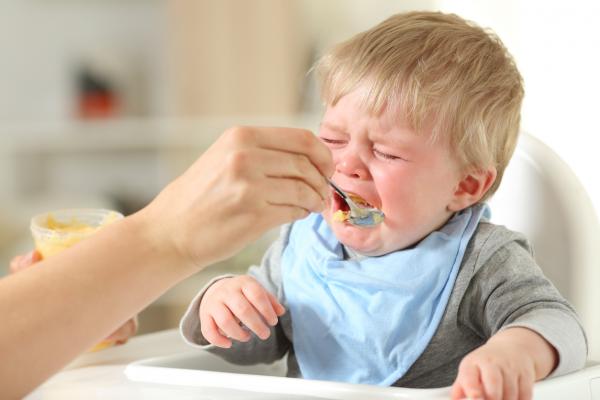Suddenly, your baby, who ate without problems, rejects the food. Since food is essential for the proper development of the child and to ensure their health, it is normal for you to worry and look for ways to solve this problem.
A healthy son
Before you start making assumptions or worrying more, you should know if your baby has any signs of illness that may be the cause of his lack of appetite, or if he has presented any strange change in his behavior or in his body.
Your son, like every human being, has a great sense of survival, which makes him eat enough to meet his needs. Therefore, if your child is eating less than before, but still eating, you should not have more concern since it is likely to be in a period of high growth, so his appetite has also decreased. Hunger and the need for nutrients is related to growth, so if your child has stopped growing or past his peak stage, he will also stop eating as much as he used to.
As for his height and body weight, you should be aware that it remains in the margin corresponding to his age since, if it is in fact within the margins, it will not be necessary to take any action or worry.
Why does my son refuse food?
It may also be that he rejects the foods you provide because it is something tedious. If this is the case, it is best to take steps to correct it as soon as possible.
When a ginger child grows up without being corrected for that attitude at mealtime, he may be affected in the long run by not receiving the necessary nutrients, so he could develop an illness or eating disorder such as these:
- Anemia. This occurs when he stop eating foods that are rich in iron.
- Beriberi. This often occurs when the main food is a grain from which the outer layer has been removed.
- Diabetes. It is usually due to the excess consumption of sugar, which the body cannot assimilate correctly.
What happens if the baby does not eat because he is sick? Causes and solutions
Your child’s lack of appetite should not cause a particular alarm because it is often a natural phenomenon. However, the possibility that rejection is caused by a physical illness or discomfort cannot be excluded.
In most cases, these are routine and mild illnesses, such as colds, flu, bronchitis, otitis, gastroenteritis, allergies or possible food intolerances. These pathologies have among their possible effects the lack of appetite. What should we do if our newborn baby does not eat because he is sick?
First, you should never force him to eat, even if he hasn’t done so in the last 24 hours. However, if it is recommended that you encourage them to drink: if it is a fever, a respiratory infection or a gastrointestinal disorder with diarrhea, it is advisable to give plenty of water to prevent dehydration.
When they feel better, they’ll claim food themselves. This will compensate in a short time weight loss caused by the disease. It goes without saying that if the loss of appetite lasts several days, it is always better to contact the pediatrician.
How do I make my child to eat well?
Everything is based on giving you a good education in all aspects of your life, thus starting with you and your partner and household habits. To do this, you should follow these tips:
- Do not insist. If your baby rejects a specific food, he may not like it. Remember that some flavors are more accessible with age and some foods are not suitable for babies. Over time, he will grab the taste.
- Do not threaten. Using emotions so that your baby eats could affect your perception towards feelings. Also, you can use it as a blackmail to get something. Food should never be linked to prizes or punishments.
- Do not use distractions. There are moms who put their son’s on TV or tablet to get distracted and eat. However, this is a bad idea since it will decrease his attention and importance towards food in general.
- Give what he needs. In addition to administering food that is appropriate for his age, you should give the portions that his system needs. Perhaps the problem is that you fill his plate too much and that’s why he leaves food. Adapt the portions to his needs.
- Eat with the family. Encourage the habit of eating together, so your child can learn from your example and get used to an hour to eat.
Your child may no longer be at his peak of growth; however, he is still at a very important stage of development. Food is a basic need that will help your child stay healthy for the rest of his life, so if you educate him well about this issue, you will not have to worry in the future.

